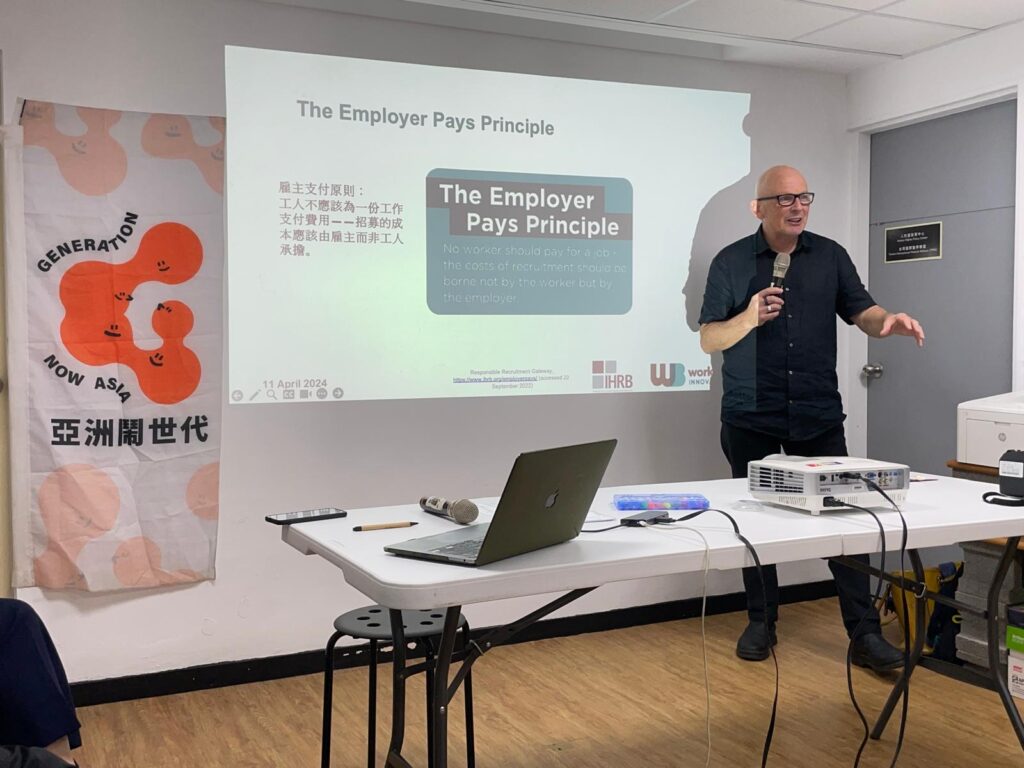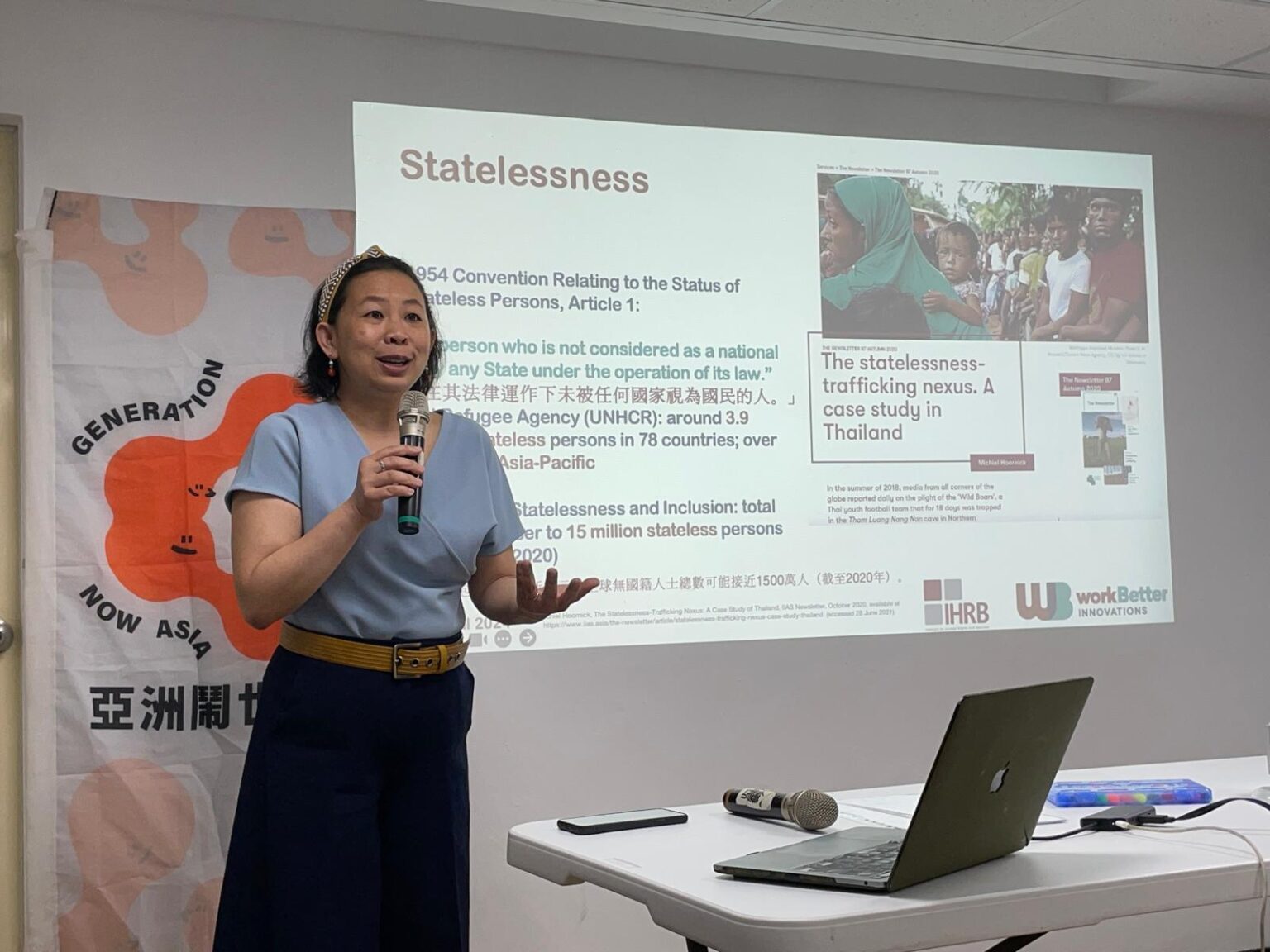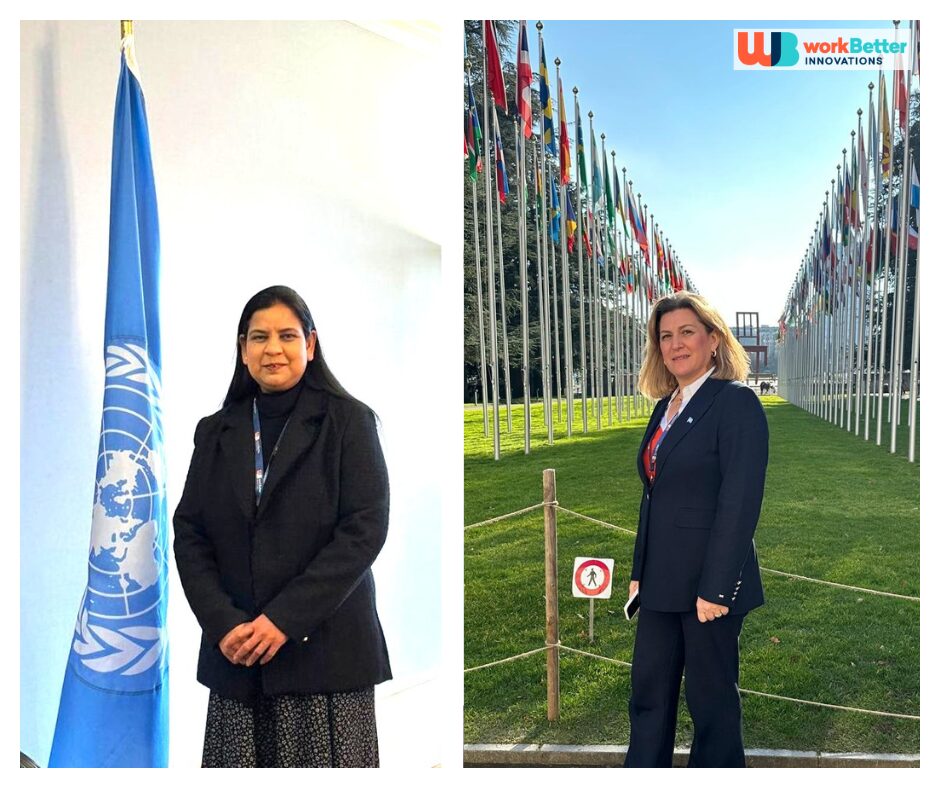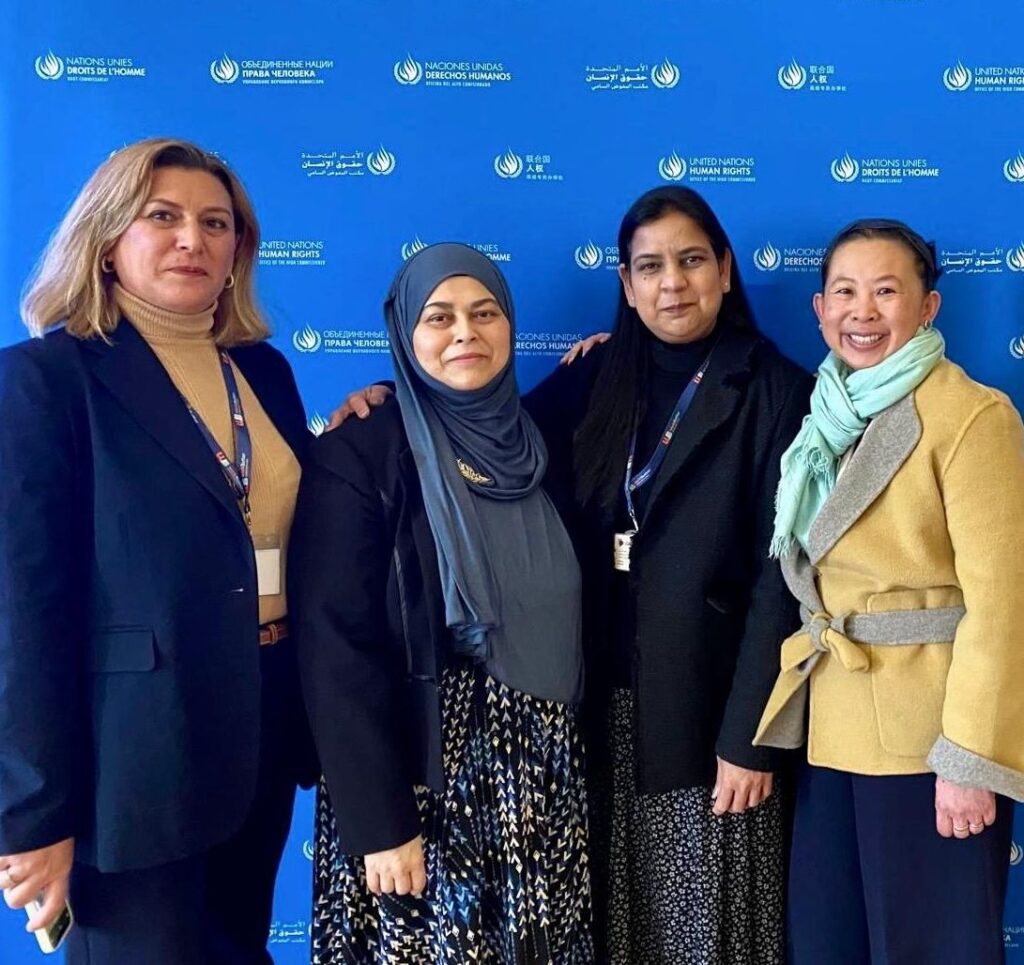30 April 2024. WBI and colleagues from the Institute of Business and Human Rights (IHRB) gave a talk on the ‘Growing Vulnerability and Risks of Exploitation of Burmese Workers in Thailand’ hosted by Generation Now Asia in Taipei on 11 April. The event was covered in an insightful article by Yuchi Hsieh and printed by The News Lens International.
According to one UN-released figure, at least 18.6 million people in Myanmar are in need of humanitarian assistance since the 2021 military coup, which has forced many to flee to neighbouring Thailand for protection and livelihood. Out of this number, it is believed that there are about 4 million Burmese living in Thailand, half of whom are undocumented migrant workers.
Despite Thailand’s historical dependence on migrant workers from Myanmar and the significant contribution made by Burmese migrant workers to the fast-growing Thai economy, fewer than 325,000 from the total of approximately 4 million migrant workers are covered by the Thai-Myanmar Labour Migration Memorandum.
Migrant workers from Myanmar can become undocumented through different reasons. The legal work permit application process is complicated, expensive and time-consuming. Therefore, many people choose to cross illegally, taking low-paid jobs in construction, farming, seafood processing and other sectors.
New migration and remittance laws introduced by the military government in Myanmar also create a harsh emigration regime for Burmese workers abroad. In addition, unregistered children of undocumented Burmese migrant workers in Thailand may be stateless and exist without nationality rights.
The second part of the talk emphasised the need for companies to understand their responsibility to human rights, especially when operating in high-risk areas. One way of taking responsibility is through implementing the Employer Pays Principle, which advocates for all recruitment costs should be absorbed by the employers.

Concluding the talk, Dr Ling advised that the government should take more proactive actions to prevent the continued occurrence of human rights violations in the private sector.
Generation Now Asia (GNA) is a civil society organisation in Taipei on a mission to inspire and empower the next generation through educational community events and workshops to build grassroots engagement and provide young people with the necessary skills to drive meaningful change.
This talk on Burmese migrant workers in Thailand took place following the Taiwan Business Forum for Human Rights and Environmental Due Diligence, held in Taipei on 9 April 2024.
To view the original article in Chinese by Yuchi Hsieh , click here.






